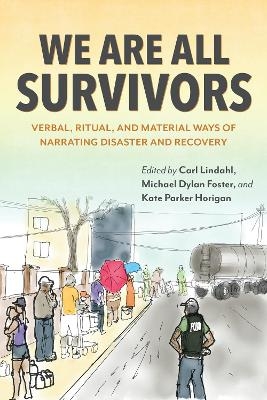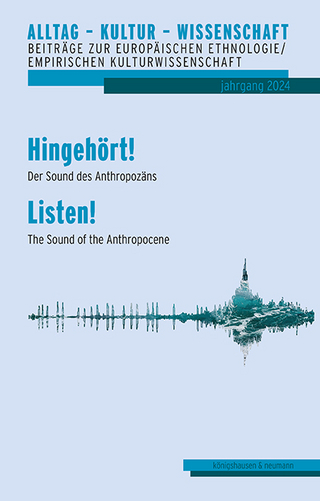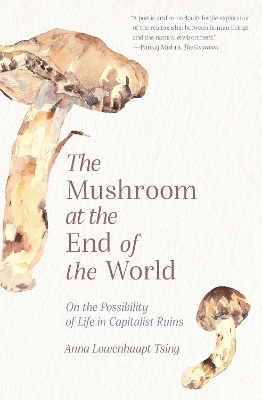
We Are All Survivors
Indiana University Press (Verlag)
978-0-253-06376-2 (ISBN)
We Are All Survivors is a collection of essays exploring the role of folklore in the wake of disaster. Contributors include scholars from the United States and Japan who have long worked with disaster-stricken communities or are disaster survivors themselves; individual chapters address Hurricane Katrina, Hurricane Maria, and two earthquakes in Japan, including the earthquake, tsunami, and nuclear disaster of 2011. Adapted from a 2017 special issue of Fabula (from the International Society for Folk Narrative Research), the book includes a revised introduction, an additional chapter with original illustrations, and a new conclusion considering how folklorists are documenting the COVID-19 pandemic.
We Are All Survivors bears witness to survivors' expressions of remembrance, grieving, and healing.
Carl Lindahl is Martha Gano Houstoun Research Professor in English at the University of Houston, cofounder of the disaster response project Surviving Katrina and Rita in Houston, and founder of the earthquake response project Memwa Ayisyen / Haitian Memory. He is author (with B. J. Ancelet and M. Gaudet) of Second Line Rescue: Improvised Responses to Katrina and Rita. Michael Dylan Foster is Professor in the Department of East Asian Languages and Cultures at the University of California, Davis. He is author of The Book of Yōkai: Mysterious Creatures of Japanese Folklore and co-editor (with Lisa Gilman) of UNESCO on the Ground: Local Perspectives on Intangible Cultural Heritage. Kate Parker Horigan is Associate Professor in the Department of Folk Studies and Anthropology at Western Kentucky University. She is author of Consuming Katrina: Public Disaster and Personal Narrative.
Preface
1. Introduction: We Are All Survivors, by Carl Lindahl
2. Into the Bullring: The Significance of "Empathy" after the Earthquake, by Yutaka Suga
3. Rebuilding and Reconnecting After Disaster: Listening to Older Adults, by Yoko Taniguchi
4. The Story of Cultural Assets and their Rescue: A First-Hand Report from Tohoku, by Kōji Katō
5. Critical Empathy: A Survivor's Study of Disaster, by Kate Parker Horigan
6. Empathy and Speaking Out, by Amy Shuman
7. The Intangible Lightness of Heritage, by Michael Dylan Foster
8. Documenting Disaster Folklore in the Eye of the Storm: Six Months After María, by Gloria M. Colom Braña
Conclusion: The COVID-19 Pandemic and "Folklife's First Responders," by Georgia Ellie Dassler and Kate Parker Horigan
| Erscheinungsdatum | 11.08.2022 |
|---|---|
| Co-Autor | Yutaka Suga, Yoko Taniguchi |
| Zusatzinfo | 23 Illustrations, black and white |
| Verlagsort | Bloomington, IN |
| Sprache | englisch |
| Maße | 152 x 229 mm |
| Gewicht | 281 g |
| Themenwelt | Sozialwissenschaften ► Ethnologie |
| Sozialwissenschaften ► Soziologie | |
| ISBN-10 | 0-253-06376-0 / 0253063760 |
| ISBN-13 | 978-0-253-06376-2 / 9780253063762 |
| Zustand | Neuware |
| Haben Sie eine Frage zum Produkt? |
aus dem Bereich


